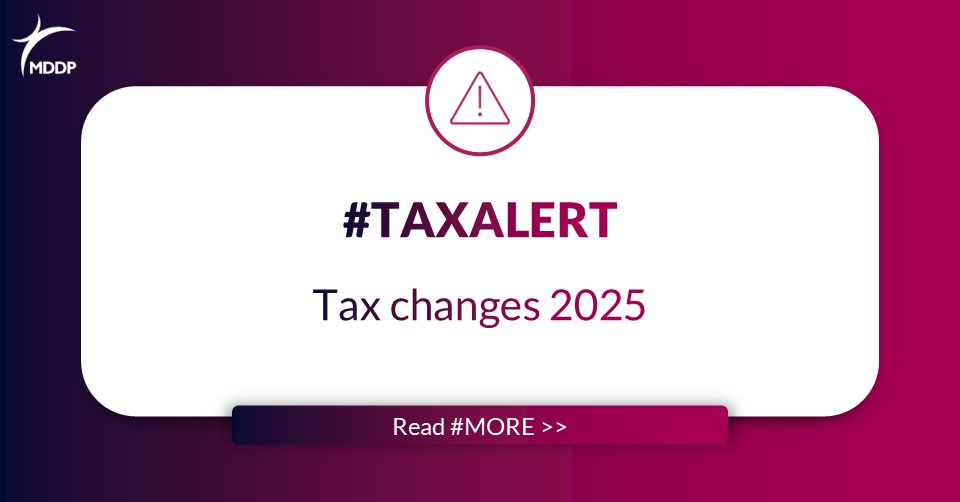Tax changes 2025
The beginning of 2025 ushered in substantial revisions to the Polish tax system. Numerous regulations have taken effect, significantly impacting tax settlements. The key changes are outlined below.
JPK_CIT
Effective January 1, 2025, the CIT Act mandates the digitalization of accounting documentation. Taxpayers are now required to maintain accounting books exclusively in electronic format. This includes supplementing the books with new data and implementing specific markers (tags) based on the logical structures of JPK_KR_PD and JPK_ST_KR (JPK_CIT files). These files for a given fiscal year must be submitted digitally to the relevant tax office by the deadline for filing the annual CIT-8 tax return.
Scope of the new JPK_CIT Obligation:
The new obligation to submit digitalized accounting books (JPK_CIT) will be phased in as follows:
- for 2025 (due March 31, 2026) – tax consolidated groups and taxpayers whose previous fiscal year’s revenue exceeded EUR 50 million.
- for 2026 (due March 31, 2027) – remaining CIT taxpayers obligated to submit JPK_VAT (VAT return).
- for 2027 (due March 31, 2028) – all remaining CIT taxpayers.
Note: The deadline for submitting the JPK_ST_KR file (fixed asset register) has been postponed by one year; the first submission is due for 2026. However, the obligation to maintain this register according to new regulations remains unchanged.
Real Estate Tax (Property tax)
Significant changes are impacting real estate tax settlements for 2025. New regulations no longer reference definitions resulting from the Construction Law, but introduce autonomous definitions of ‘building’ and ‘structure’, ‘construction works’, ‘building object’ or ‘permanent attachment to land’ within the Act on Local Taxes and Fees.
These changes may cause difficulties in correctly classifying fixed assets. It’s also possible that classifications under the new regulations will differ from previous years, potentially leading to increased tax liabilities.
The deadline for 2025 real estate tax settlements has been extended to March 31, 2025. However, to utilize this extension, taxpayers must notify the tax authority and pay the January, February, and March 2025 taxes at the amount paid for those months in the previous year. For those failing to meet these requirements, the deadline remains January 31, 2025.
Global minimum tax (GloBE) and domestic Equalisation Tax
Effective January 1, 2025, the Act of November 6, 2024, on equalization taxation came into force, implementing EU Directive 2022/2523 of December 14, 2022 on ensuring a global minimum level of taxation.
Equalisation tax is a new element of the Polish tax system. It applies to capital groups whose consolidated revenues in two of the last four years reached at least EUR 750 million annually. The tax will affect entities with an effective tax rate (ETR) below 15%.
This regulation aims to prevent profit shifting to low-tax jurisdictions and ensure that the income of large capital group entities is taxed at a minimum level.
Cash Basis PIT (Personal Income Tax)
Beginning in 2025, entrepreneurs can settle their PIT only upon receiving payment from clients for services rendered or goods delivered. Currently, the tax liability arises upon delivery or service completion, regardless of payment receipt. The same principle will apply to deductible expenses. Eligible PIT payers includes entrepreneurs running sole proprietors, which:
- Using the progressive, flat-rate, IP BOX, or lump-sum tax schemes;
- Whose previous year’s revenue did not exceed PLN 1 million;
- Not keeping accounting books;
- Submitting a written declaration to the tax office opting for the cash basis method.
This method is entirely voluntary. However, opting in requires constant monitoring of payments, revenue, and client status.
VAT exemption for small businesses
As of January 1, 2025, small businesses with EU headquarters can utilize the SME special procedure for VAT exemption across EU member states.
Requirements to use this preference:
- Registration for exemption in the company’s country of establishment.
- Combined EU turnover in the previous and current year not exceeding EUR 100,000.
- Sales not exceeding the national VAT exemption limit (e.g. in Poland the limit is PLN 200,000).
Exemption requires quarterly reporting of turnover in all EU countries where the business operates.
Changes in the health insurance contribution
In 2025, entrepreneurs taxed under the progresive or flat-rate system will benefit from a reduced health insurance contribution. Currently, it’s 9% or 4.9% of income, but not less than 9% of the minimum wage. From January 1, 2025, the minimum contribution will be 9% of 75% of the minimum wage, representing a 25% reduction.
Entrepreneurs can also choose whether to include income and expenses related to the sale of fixed assets in the health insurance contribution base.
Accounting bookkeeping threshold
The revenue threshold above which self-employed individuals must maintain accounting books instead of simplified records has increased. While not strictly a tax change, it may generate additional costs and reporting obligations.
Currently, the threshold for individuals, civil law partnerships, and general partnerships of individuals is EUR 2 million. Effective January 1, 2025, this increases to EUR 2.5 million for fiscal years starting after December 31, 2024.
Excise duty on tobacco products
Effective March 1, 2025, excise duty rates on tobacco products, novelty products and e-liquid will increase. The increase will range from 25% to as much as 75%, depending on the specific tobacco product.
It is also worth keeping in mind other tax topics that may be challenging for businesses. We invite you to read our material ‘Tax Hit List 2025’. It is a compilation of the most important tax issues that will most strongly shape economic and business reality in 2025. #MORE >> https://www.mddp.pl/tax-hit-list-2025/.
If you are interested in the above changes, please contact your MDDP expert:
| Anna Zielony | anna.zielony@mddp.pl | (+48) 721 715 856 |
or your adviser from MDDP.
This Tax Alert does not provide legal or tax advice. MDDP Michalik Dłuska Dziedzic & Partners spółka doradztwa podatkowego spółka akcyjna is not responsible for the use of the information provided in the Alert without the prior consultation with legal or tax advisers.

